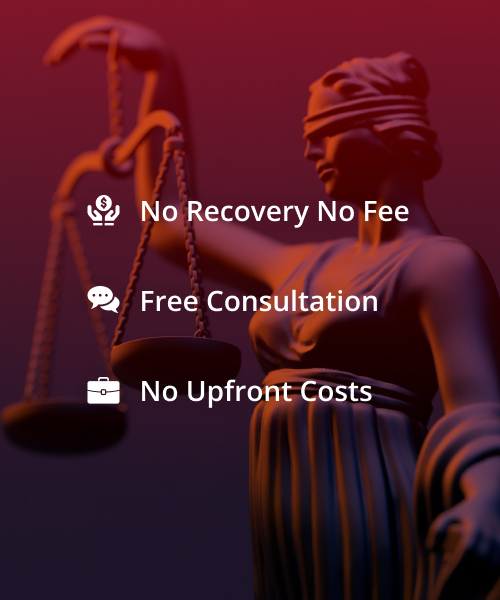- Free Case Evaluation: (305) 577-3777 Tap Here to Call Us
Knowing Too Much Can Be Bad for Your Health – Patient Knowledge in Medical Malpractice Cases
“You Have Terminal Cancer”
Words that would make any patient develop instant and profound perspective into how important they consider their lives to be. When a patient is faced with a diagnosis such as this, they often go through what is considered the Five Stages of Death – Denial, Anger, Bargaining, Depression, and Acceptance. As a coping mechanism, many patients in the Bargaining stage attempt to look for an answer to their problems. Some turn to religious support while others turn to uncovering everything humanly possible about their disease and “bargaining” ways in which they can defeat it.
For some, it might seem unimaginable that trying to understand and attempting to learn everything about your disease could end up hurting you. Yet, the dark truth is that what you know CAN be used against you. In fact, it’s occurring right now inside Florida courtrooms. Courts have started to hold patients more accountable for their medical care. Some people feel that educated patients have been penalized for their knowledge, with medical malpractice cases arguing that these patients failed to adequately care for themselves throughout the treatment process. The rationale behind this is that technology and the advancement of education has made the public more savvy to medical issues, thus the public bears a share of the responsibility for their treatments. Countless medical malpractice suits have resulted in reduced liability for practitioners and increased expectations for educated patients.
In a medical malpractice suit, patients sue medical practitioners, such as doctors, for any medical malpractice that the doctor committed – malpractice such as failing to take adequate care of the patient or failing to prescribe the patient the necessary medications. However, courts have recently held that since patients are now more knowledge about their condition or diagnosis, they should be charged with more responsibility and less should be placed on the medical professional. Therefore, in a medical malpractice action where a doctor did something wrong in the medical procedure, the patient may not have sufficient remedy if the doctor can prove that the patient did or did not do something he knew he should or should not have done, but something the doctor might have neglected to explain thoroughly.
So is Florida medical malpractice law sufficiently protecting patients now? Has precedent tipped the scales in favor of doctors too much now and neglected unaware patients?
The “Traditional” Relationship of Trust
Traditionally, courts assumed that in doctor-patient relationships, the physician had superior knowledge while the patient had little experience and information in regards to any health issues. As such, patients placed great trust in a physician’s decision-making ability and authority. Because of this, physicians were held to a higher standard of care. The traditional physician-patient relationship was based on the patient’s “blind faith” and the physician’s expert and superior guidance.
The New Relationship in the Age of the Internet
The traditional physician patient relationship was based on faith and trust. Unfortunately, the increasing number of medical malpractice cases coupled with the dawning societal realization that doctors can be wrong has led patients to find, explore, and educate themselves with all of the relevant and expert information available via the internet. Patients have started to arm themselves with knowledge about their illness and the steps they must take to better themselves. With the growth of easily accessible scientific knowledge and higher levels of education among the public, many physicians have difficulty maintaining credible claims of special status and judgment. Patients have removed the blindfolds of trust they placed on themselves for their doctors and have instead started to complement doctor information with information they acquire from medical journals, condition-specific books, and the vast, knowledge-rich world of the Internet.
The Ugly Result of Patient Education
In the past, courts were less likely to hold patients responsible for their own care in a medical malpractice action because practitioners had vastly superior knowledge. Physicians had a difficult burden in demonstrating that a patient was negligent with his own care. Now, with the evolution of the doctor-patient relationships, courts have begun to hold that patients are no longer presumed oblivious and unaware of health care needs. Thus, patient negligence that occurs after physician negligence can, in some cases, be used against the patient.
The Medical Malpractice Action
For a patient to effectively assert a medical malpractice action, the patient must show that the physician had a duty, the physician breached that duty, the physician was the cause of the harm, and that an actual harm occurred. The burden to prove this falls on the patient as the party seeking relief. The duty must be based on a physician-patient relationship, and sometimes a recognized standard of care in the medical community is used to determine whether the doctor had a duty or not. To prove that the doctor breached the duty, the doctor must have failed to comply with that standard in the care of the patient. Lastly, the cause of the harm must result from a casual connection between the breach of duty and the injury sustained by the patient. To succeed the patient must prove all of these elements.
However, in Miami, Broward, West Palm, and other Florida courts, physicians are more often asserting the affirmative defense of comparative negligence – a defense that allows physicians to show that the patient’s negligence, rather than or in addition to the physician’s negligence, was the cause of the patient’s injury. Traditionally, a defense of comparative negligence in a medical malpractice action was often unsuccessful due to the unique characteristics of the physician-patient relationship – the physician’s superior knowledge, the patient’s inexperience, and the high standard of care demanded of the physician. All that has changed.
Comparative Negligence – Did the Patient Breach His Own Duty of Care?
When a physician is sued for medical malpractice, a physician can assert comparative negligence – a defense that reduces the patient’s recovery in the medical malpractice action. The defense ascribes negligence of the patient as a contributing cause to the damages that are being claimed.
To establish the defense of comparative negligence in a medical malpractice action, a physician must prove each of the following elements of negligence:
- The patient owes himself or herself a duty of care
- The patient breaches that duty; and
- The breach of the duty is proximately connected to the damages the patient sustains.
A doctor would have to prove that the patient was well-informed regarding the severity of their condition and the significance of the treatment of the condition. In addition, to establish that the patient had a duty of care for themselves, there is a requirement that a patient exercise the degree of care expected of a reasonable person under similar circumstances. This standard of care can be modified depending on the pain, disability, medication, the effects a disease has on the patient, and the difference in levels of knowledge between the doctor and patient.
Proximate cause in comparative negligence in a malpractice law suit occurs where the patient’s action was the natural, direct, and continuous sequence between the negligent act of the patient and the injury that it caused. Common instance of where courts have held that comparative negligence occurs is where a patient fails, disobeys, or delays to follow a physician’s advice. The result is that since patients have become more knowledgeable about medical issues, a patient’s refusal or inability to exercise due care to protect his own health needs is more likely found to be the proximate cause of the harm to the patient. Therefore, no longer is it just the doctor who is the target for the negligence in a medical malpractice action – the patient is now partially at risk.
What is the Modern Patient Left to Do?
No one expects patients to stop informing themselves about their diseases, diagnosis, or general health issues, especially when so much information is so readily available. Therefore, as an informed modern patient, it is necessary to understand that a patient’s role in understanding the nature of their care has increased. Consequently, patients have much greater responsibility in the eyes of the courts than in the past.
To have a viable claim for medical malpractice and to make sure that doctors do not transfer responsibility to patients, it is important that patients:
- Follow the directions and prescription instructions provided by their doctors. Patients must follow doctor directives as best as possible in order to minimize the likelihood of a comparative negligence defense undermining the ability of the patient to seek full damages
- Ask their doctors additional questions if they feel that the directions or prescriptions are not accurate due to their prior information on a health issue. If a patient is still uneasy, get in writing the reasons why a specific instruction or prescription has been given.
Are the courts fairly holding patients more accountable for their own standard of care? Are patients partially negligent in instances they fail or disobey instructions by a medical practitioner? Tell us what you think in the comments below.









